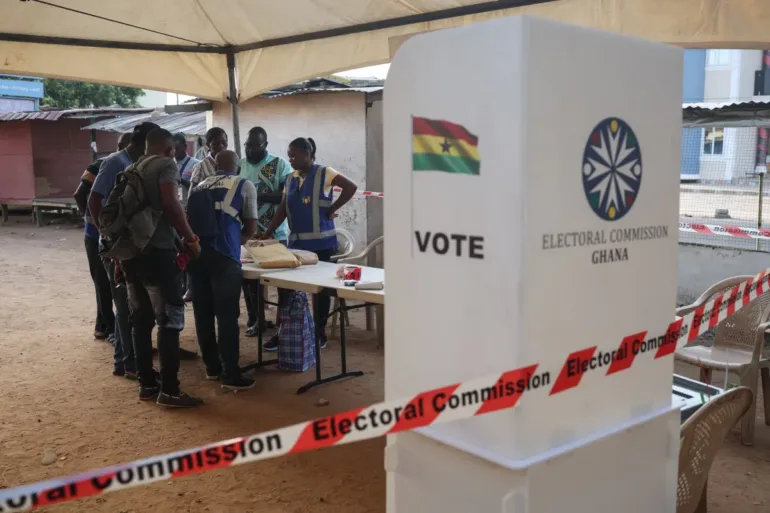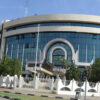Ghanaians went to the polls on Saturday in a highly competitive election, with Vice President Mahamudu Bawumia, a former central banker, and opposition ex-President John Mahama facing off in a closely contested race.
The country’s struggling economy emerged as the central issue, as Ghana grapples with a debt default, high inflation, and ongoing negotiations for a $3 billion IMF bailout. The election also marks the end of President Nana Akufo-Addo’s two-term limit, and voters will elect both the new president and parliament.
Polling began at 0700 GMT and will close at 1700 GMT, with early results expected by Sunday and full presidential results anticipated by Tuesday.
“We want change; the economic situation is very tough,” said retired policeman James Nsiah, who was waiting to vote in Accra. “The cost of living is high.”
To ensure a smooth election process, the government temporarily closed all land borders from Friday night until Sunday, according to an Interior Ministry statement.
With a history of political stability, Ghana’s two main parties—the ruling New Patriotic Party (NPP) and the opposition National Democratic Congress (NDC)—have alternated in power since 1992. The NPP, hoping to secure an unprecedented third term, is backing Bawumia, who has faced criticism over the economic performance of outgoing President Akufo-Addo. His campaign slogan, “Break the 8,” refers to the goal of securing a third consecutive term, a feat no party has achieved in Ghana’s modern political history.
“I know what I want to do from day one in the presidency. Give me the chance to transform this nation,” Bawumia told thousands of supporters at a closing rally in Accra. A UK-educated economist, he highlights improvements in the economy, such as a drop in inflation from more than 50% to around 23%, as well as government plans for continued digitalization, free education, and health programs.
However, many Ghanaians continue to struggle with high living costs, limited job opportunities, and a weakened cedi currency.
Opposition candidate Mahama, who served as president from 2012 to 2017, has positioned himself as a challenger capable of resetting the country’s economic direction. His promise to introduce a “24-hour economy” aims to extend industrial working hours to create jobs and boost production.
He also pledges to renegotiate parts of the IMF bailout agreement. However, Mahama’s previous presidency was marked by economic challenges, including financial difficulties and power shortages, which have led some to question his economic stewardship.
Both major candidates hail from the northern region of Ghana, traditionally an NDC stronghold. This region is now more politically divided, making it a crucial battleground in the election.
Beyond the economy, the election also highlights concerns over rising insecurity, particularly in the northern regions, where jihadist conflicts in neighboring Niger and Burkina Faso have begun to spill over. Illegal gold mining, which has caused environmental damage and harmed cocoa farmlands, has also emerged as a key issue in the race.
AFP


